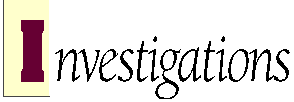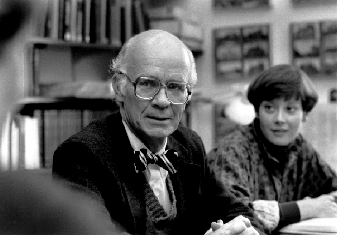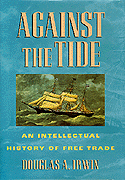
The University of Chicago Magazine
October-December 1996

America's racial hostilities are dropping, declare a number of recent books: Divisions between blacks and whites are, more and more, secondary to economic divisions. Wishful thinking, say Chicago's Lynn Sanders and the University of Michigan's Donald Kinder. In Divided by Color: Racial Politics and Democratic Ideals (U of C Press), the two political scientists chart a gulf far deeper than many Americans acknowledge. Race, write Sanders and Kinder, is "a divide without peer," a far stronger predictor of American attitudes than class or gender on issues from gay rights to the death penalty. The common assumption that America's racial divide springs from a perception of threatened self-interest is one that Sanders and Kinder found to be false: "Citizens both black and white seem to be asking themselves not what's in it for me, but what's in it for my group?" When the United States entered World War II, Americans felt a need to set aside cultural and political differences and cultivate consensus. The Divinity School's Martin E. Marty, PhD'56, explains how religious organizations tried to satisfy that need in Under God, Indivisible, 1941 1960 (U of C Press), the third of four volumes in his Modern American Religion series. Though dissent lurked behind the united front--based on the newly conceived Judeo-Christian "tradition"--many people embraced ecumenism. Marty traces religion's influence on society and politics through the onset of the Cold War into the Eisenhower era, when "under God" was first added to the Pledge of Allegiance. While you might not like what chocolate or cola do to Junior's teeth, don't worry about how they affect his behavior. Moderate doses of caffeine‚ or about two cups of coffee a day, have no harmful effects, say a team of U of C and University of Colorado researchers led by Mark Stein, associate professor of psychiatry and pediatrics. The findings--obtained through a meta-analysis of several smaller studies on caffeine, sometimes used to treat attention deficit hyperactivity disorder, and theophylline, a similar drug often taken by children with asthma--contradict popular belief and earlier studies. From the ancient Greeks' preference for self-sufficiency to Pat Buchanan's tirades against NAFTA, the idea of free trade among nations hasn't lacked critics. Yet it's not only endured, but become one of the strongest ideas that economics has to offer. GSB associate professor Douglas Irwin chronicles its slow success in Against the Tide: An Intellectual History of Free Trade (Princeton). Attitudes to trade turned more positive in the Middle Ages, he writes, but it took Adam Smith to establish the case against mercantilism and state interference. Irwin details the objections to free trade that have arisen ever since--including the version of protectionism for exports popular today--and argues that those criticisms are, on the whole, still wrong. Written by Andrew Campbell and Kim Sweet Go to: Citations
Two Nations.

The Power of One.

No Jolt.

Rough Sailing.

More Investigations:
Return to October-December 1996 Table of Contents